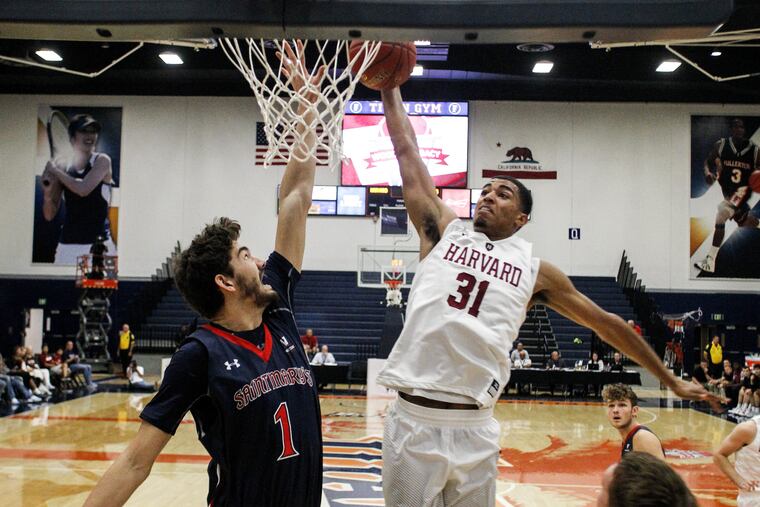Seth Towns returns to Harvard, making Crimson the favorite to win conference | Ivy League preview
Last year's Ivy League player of the year is back after averaging 16 points and shooting 44.1 percent from three-point range last season.

Last season, Penn shared the Ivy League title with Harvard and then beat the Crimson to win the Ivy League tournament. This year, the Quakers have several key veterans back. So why weren't picked to repeat?
Simply because Harvard returns even more back from a team that went 12-2 during the regular season. The Crimson finished 18-14 overall and ended its season by losing an NIT opening-round game to Marquette.
Leading the way for the Crimson is 6-foot-7 junior Seth Towns, who was the Ivy League player of the year after averaging 16 points and 5.7 rebounds while shooting 44.1 percent from three-point range.
Chris Lewis, a 6-9 junior, averaged 12.8 ppg., 5.5 rpg. and an Ivy League-leading 1.5 blocks per game while earning first-team all-Ivy League honors. Junior guard Bryce Aiken averaged 14.1 points in 14 games but missed the most of the second half of the season due to injury.
Penn (24-9) has a veteran team prepared to make another run led by junior forward A.J. Brodeur (13.1 ppg.) and junior guard Ryan Betley (14.3 ppg.)
>> PENN SEASON PREVIEW: Steve Donahue looks to build off last year's success
Yale (16-15) returns 95 percent of its production from a team that lost to Penn in the Ivy League tournament semifinal. Junior guard Miye Ono was a first-team all-conference choice after averaging 15.1 points per game.
Princeton (13-16) returns nearly 75 percent of the scoring from last year, led by senior guard Devin Cannaday (16.7 ppg).
Brown (11-16) has two returning players who each averaged 17.3 points per game: sophomore guard Desmond Cambridge, the Ivy League rookie of the year, and junior guard Brandon Anderson.
Cornell (12-16) was the fourth team to qualify for the Ivy League tournament. Senior guard Matt Morgan led the league in scoring (22.5 ppg) in earning first-team all-Ivy honors. The Big Red might have been more serious contenders if 6-9 Stone Gettings hadn't left for Arizona as a graduate transfer.
Columbia (8-19) and Dartmouth (7-20) don't figure to move up much in the standings.